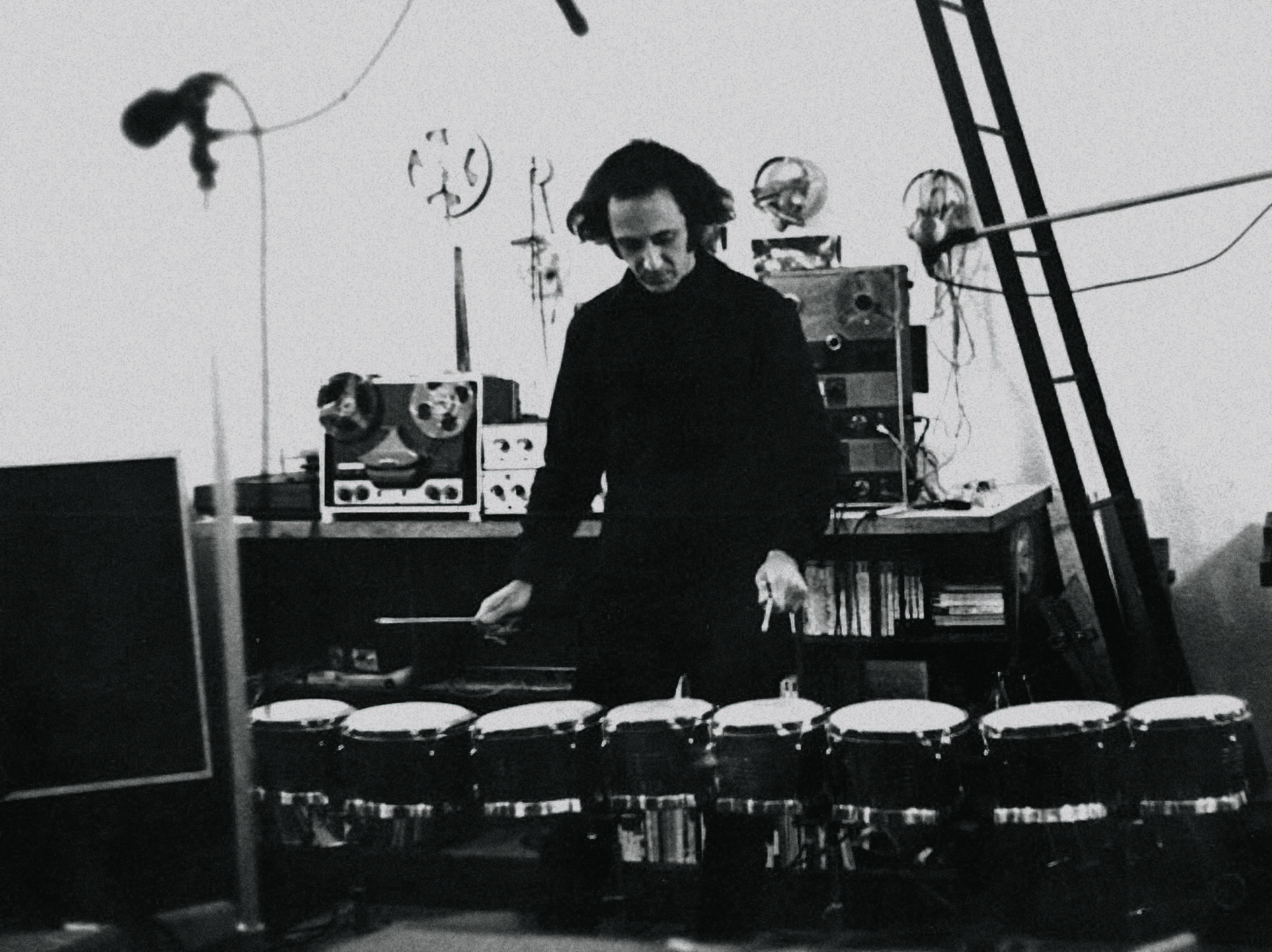
The Ensemble intercontemporain plays Minimal
ARCHIVE
In resonance with the exhibition Minimal, the Bourse de Commerce offers a program dedicated to minimalism in music. Through a series of concerts, this program presents iconic and rare pieces of minimalist music, while exploring its rich extra-Western influences and contemporary echoes.
October 22nd and 23rd, the Ensemble intercontemporain plays Philip Glass, Pauline Oliveros, Steve Reich and Caroline Shaw.
Program
- Pauline Oliveros – Response Ability (excerpt from Deep Listening Pieces, 1972 – )
- Steve Reich – Violin Phase (1967)
- Caroline Shaw – Boris Kerner (2012)
- Philip Glass – Two Pages (1968)
With the Ensemble intercontemporain :
- Violin : Jeanne-Marie Conquer, Hae-Sun Kang, John Stulz, Diego Tosi
- Cello : Éric-Maria Couturier
- Percussion : Aurélien Gignoux
The work of the composer and performer Pauline Oliveros (1932-2016) reshaped how we understand sound, listening, and musical form. Her early encounters with radio static and environmental noise recorded on a tape machine she received in the 1950s sparked a life-long engagement with the sonic textures of everyday life. Based in San Francisco, she became a founding member of the San Francisco Tape Music Center, where she developed an open, exploratory approach to electronic music.
About Response Ability
Response Ability is one of Pauline Oliveros’s Deep Listening Pieces, works that explore attentive listening and conscious response to sounds. Rather than a fixed score, it uses open instructions, inviting performers and listeners to create a sound space where perception, interaction, and improvisation are essential to the musical experience.
Born in New York in 1936, Steve Reich read philosophy at Cornell before training in composition at Juilliard and Mills College with Darius Milhaud and Morton Subotnick. A Fulbright Fellowship in 1966-67 took him to Florence to work under Luciano Berio. Back in the United States, he co-founded the ensemble that became Steve Reich and Musicians, touring internationally throughout the 1970s and 1980s. His early tape works It's Gonna Rain (1965) and Come Out (1966) established his reputation for process-driven music.
About Violin Phase
Composed in 1967, Violin Phase is the first piece in which Steve Reich explores what he calls “resulting patterns”, motifs that emerge from the combination of two or more identical instruments playing the same pattern, but slightly shifted in time with respect to one another. This phasing of several repeated melodic lines produces acoustic illusions.
Caroline Shaw is an American composer, violinist, and singer, born in Greenville, North Carolina. She is the youngest recipient of the Pulitzer Prize for Music, awarded in 2013 for her a cappella composition Partita for 8 Voices (by Roomful of Teeth), written for the vocal ensemble Roomful of Teeth, of which she is a member. Her work reflects highly diverse inspirations, such as food, death, visual arts, literature, and the interactions between humans and nature.
About Boris Kerner
Composed in 2012, Boris Kerner is a chamber work juxtaposing a cello motif with percussive interventions performed using flowerpots. This interaction creates a tension between melodic fluidity and rhythmic disruptions, echoing the work of German engineer Boris S. Kerner, who in the early 2000s developed a theory of traffic-flow modeling.
Born in 1937 in Baltimore, Philip Glass studied music at the University of Chicago, the Juilliard School, and Aspen, before completing his training in Europe with Nadia Boulanger. He also collaborated with Ravi Shankar, then returned to New York in 1967 to form the Philip Glass Ensemble. From his earliest works, such as Piece in the Shape of a Square (1967) and Music in Similar Motion (1969), Philip Glass established himself within the minimalist movement, quickly becoming one of its leading figures.
About Two Pages
At the end of the 1960s, influenced by the music of Steve Reich, Philip Glass composed several minimalist works, including Two Pages. The piece draws inspiration from Reich’s rhythmic experiments, but instead of superimposing a motif at different speeds as in Piano Phase (1967), Glass adds to and subtracts from a five-note motif, creating rhythms in constant evolution.